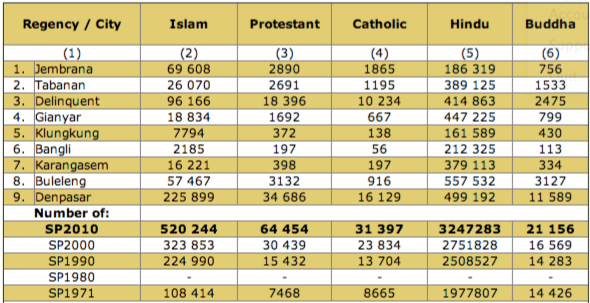The sacred month of Ramadan in 2024 begins with the sunset on March 11 and ends with the sunset on April 10. The celebration of Eid al-Fitr, also known as Lebaran or Idul Fitri, will take place on April 10-11.
As it is known, Indonesia is the country with the largest Muslim population. Additionally, it's well-known that the primary religion in Bali is Balinese Hinduism, a local variation of Hinduism. Nevertheless, there is still a significant Muslim presence on the island, with around 500,000 people. Many individuals from neighboring predominantly Muslim islands also live and work on the island.

The island has numerous mosques where regular services take place. Ramadan doesn't go unnoticed in Bali. During this month, many small shops and restaurants might close, but tourists visiting for 1-2 weeks are unlikely to pay much attention to it.
Ramadan is one of the pillars of Islam. It's a sacred month during which Muslims voluntarily abstain from eating, drinking, smoking, and intimate relations during daylight hours. The duration and dates of Ramadan depend on the lunar calendar, usually lasting for 29 or 30 days.
The morning meal during this period should be finished 30 minutes before sunrise. In the evening, after sunset and evening prayers, eating and drinking are permitted until morning.
At the end of the fasting period, a grand celebration called Eid al-Fitr takes place. On this day, Muslims perform a festive prayer and give alms.
Complete abstinence from basic human needs is an opportunity for devout Muslims to demonstrate the strength of their faith. Besides physical restrictions, every Muslim also strives to cleanse their mind of passions and impure thoughts, and to restrain their instincts.
It is believed that fasting for a person who cannot cleanse their mind and restrain their instincts is a futile effort.
Muslims are confident that observing both the physical and spiritual fast has an extremely positive impact on the souls of the believers.

What a Muslim is not allowed to do during Ramadan:
- Even thinking about prematurely ending the fast
- Intentionally consuming food and drink during daylight hours
- Smoking during daylight hours
- Engaging in sexual intercourse during daylight hours
Categories of individuals exempt from fasting:
- Non-Muslims
- Minors and mentally ill individuals
- Elderly and sick people unable to fast
- Pregnant and breastfeeding women if there's a threat to the life and health of the child and mother
- Travelers can eat at any time throughout the month
- Women during menstruation and postpartum period.
People who do not observe the fast are advised not to eat openly. In Jakarta, for example, during Ramadan, curtains or screens are placed in front of restaurants and cafes where food is served during the day. Those who are not fasting can eat without tempting those who are fasting.
Although many Muslims have become so accustomed to fasting and developed strong willpower that they can calmly sit and talk to someone having lunch, reassuring them that they feel fine.
An essential condition for fasting is the intention to observe it. Muslims express their genuine intention mentally and verbally between evening and morning prayers.
If a Muslim, for some reason, is unable to fast, they acquire a "debt" that they must make up for. This can involve fasting on different dates, feeding the poor, or seeking repentance.
The last 10 days of Ramadan are considered the most important. Muslims pray more, spend more time in mosques, and engage in more charitable deeds during this time. Some isolate themselves in mosques for the entire period, as the Prophet Muhammad did during his lifetime.
You can add one right now!